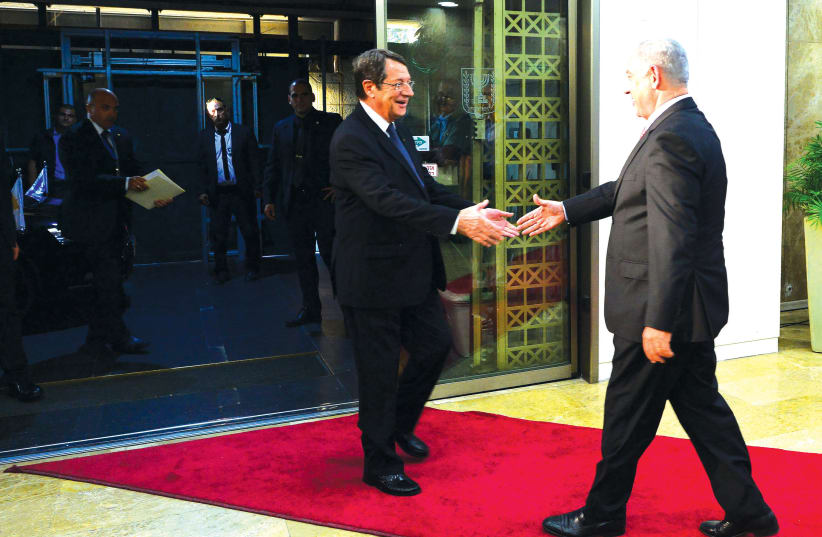The natural gas that Israel is leaving in the ground
DIPLOMATIC AFFAIRS: Cyprus’s president had planned to come to Israel next week. While the trip is off for now, the countries remain at a stalemate over the development of the Aphrodite-Yishai field.
